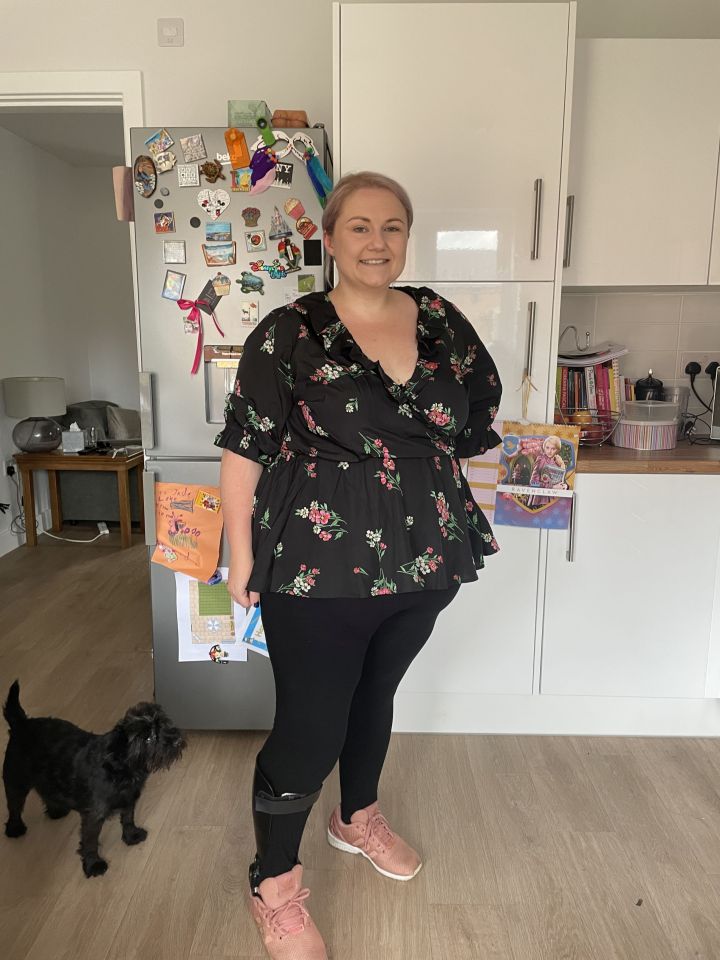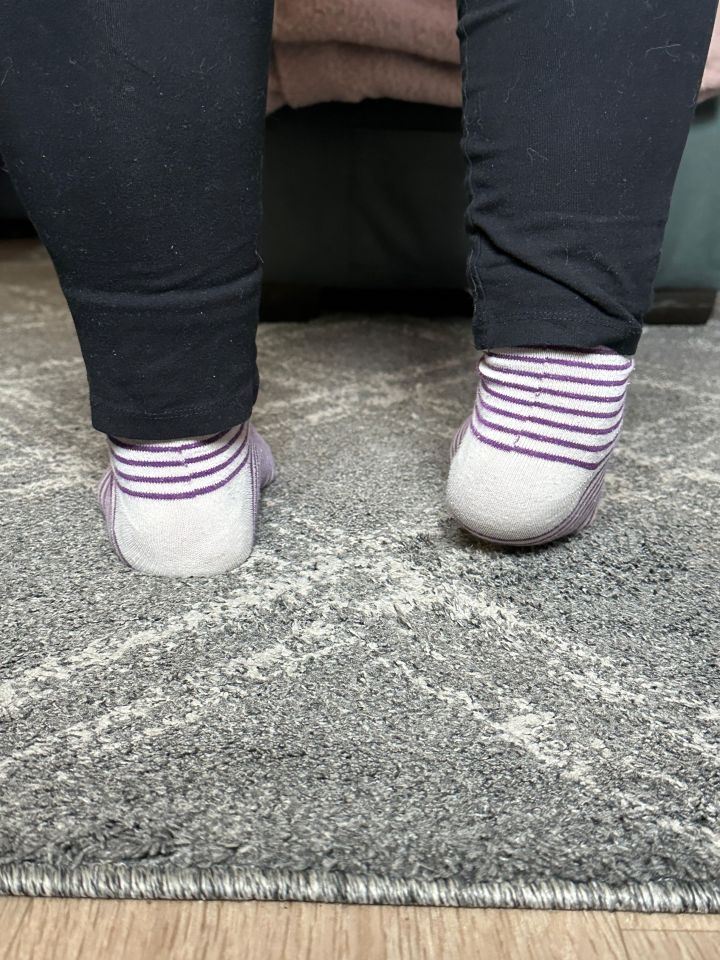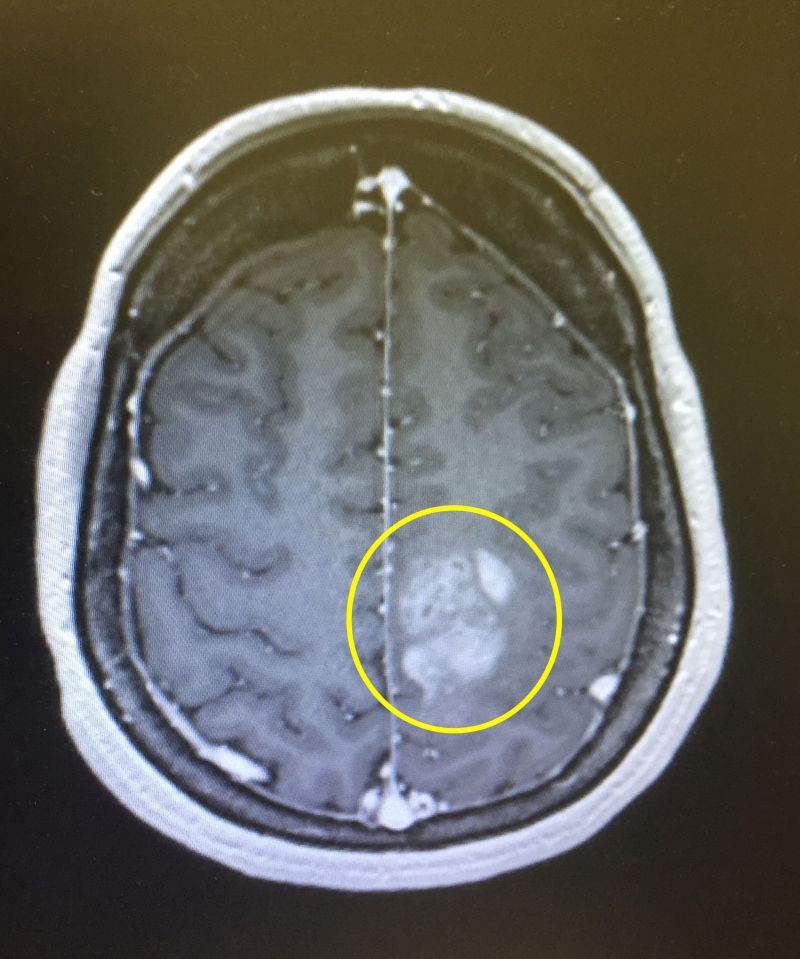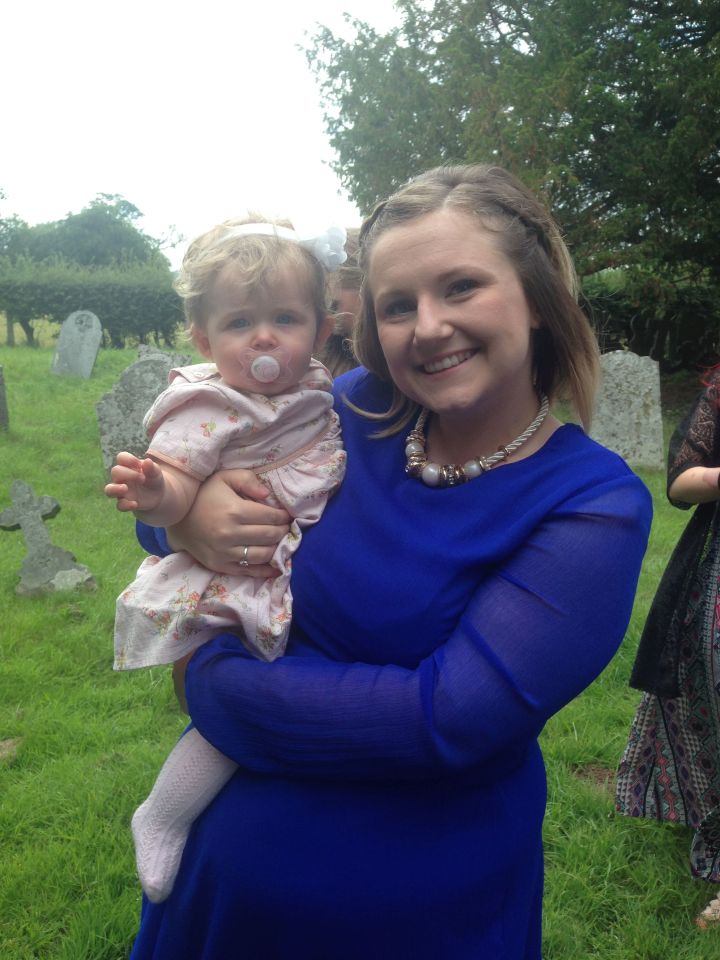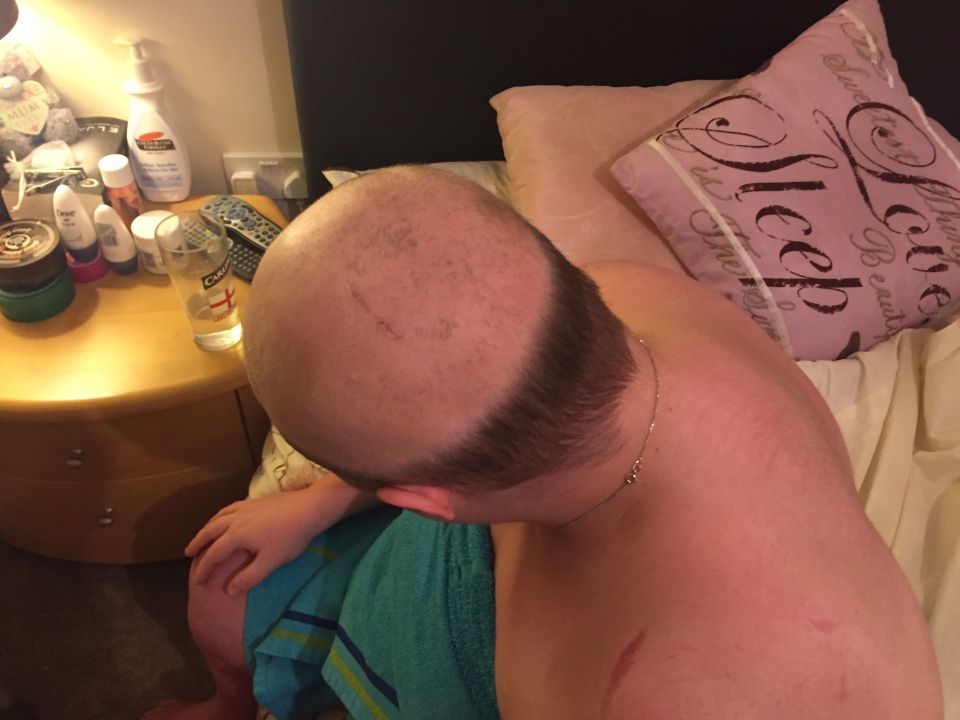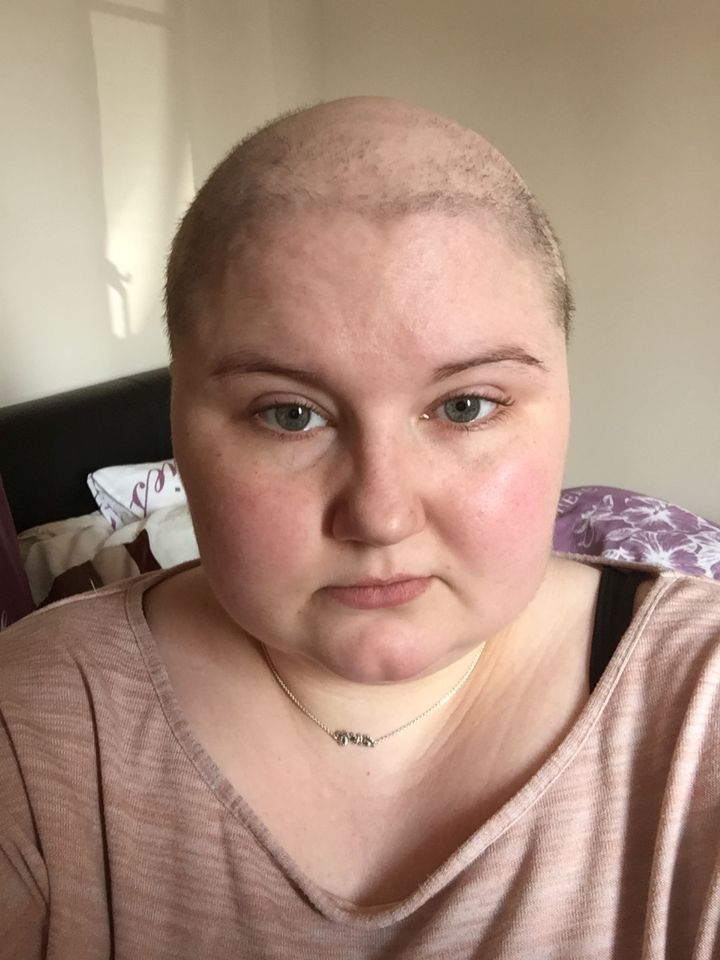A MUM who was carried home when her foot “bent outwards” on a night out was laughed at for being “too drunk” – until it turned out to be a bizarre terminal cancer symptom.
Jade Collett was only 22 when she was on a night out with friends and began experiencing strange symptoms in her right foot.
The 32-year-old says she noticed it had turned slightly outwards and gone completely numb, forcing the mum-of-one to be carried home due to the pain.
Despite her friends laughing her ailment off as “being too drunk”, Jade grew more concerned when her symptoms persisted the following day.
Jade, who lives in Tenbury Wells, Worcestershire, visited her GP who sent her for an MRI scan and further testing.
The results revealed that Jade had a brain tumour in her motor cortex, which was affecting mobility in her foot, and she had just two years to live.
Read more on brain tumours
Devastated, Jade began planning her own funeral and preparing herself to say goodbye to her one-year-old daughter Grace.
However, nine years after her terminal cancer diagnosis, Jade is continuing to defy doctors’ predictions who “cannot explain” why her tumour remains the same size.
Now, Jade credits her unusual foot symptom for helping save her life by catching her hidden cancer early.
Jade, who is unable to work due to her tumour, said: “I was on a night out with my friends then all of a sudden my foot started to turn outwards a little bit.
“I had hip dysplasia during my pregnancy so thought it was something to do with that or I’d twinged a nerve.
“Everyone thought it was a pinched nerve. It didn’t cross my mind that it could be something sinister.
“When we walked into town, it was hurting but a few hours in I couldn’t even put my foot on the ground it was hurting that much. I had to be carried home.
“All my friends thought I was drunk and just laughed it off.
“But the next day I still couldn’t put my foot on the ground and it felt really numb.”
Jade was sent for an MRI scan after visiting her local GP, which revealed that she had a brain tumour and would need further testing.
Jade said: “I just froze. I didn’t even talk or cry. I was just sitting in the car silent thinking what is going on?
“I remember balling my eyes out crying saying ‘I’m going to die’. Grace wasn’t even one yet.
I remember balling my eyes out crying saying ‘I’m going to die’
Jade Collett
“They told me the fact my foot turned outwards was really lucky because not that many people get that symptom. And I didn’t have any other symptoms.”
A biopsy confirmed that Jade had Grade 4 Glioblastoma – the most aggressive type of cancer which originates in the brain.
Jade said: “The only thing I thought about was Grace. I asked how long I had and he told me two years max.
“They said it’s inoperable because if they attempted to remove it, I would be disabled.
“They would give me treatment but it was just to keep me stable and prolong my life.”
Defying the odds
After undergoing chemotherapy and radiotherapy, Jade was “waiting around to die” but continues to defy doctors’ two-year prognosis.
Jade, whose foot still has the bend in it and is still numb, said: “I found it hard going past the second year because I felt like I was waiting around to die. I felt like I couldn’t plan ahead and was in limbo.
“I’ve got a will and had a whole funeral planned, it’s all ready. I never thought I’d have to plan my own funeral at 22.
“But I’ve always wanted to keep going for Grace. I feel so lucky and just thought I’m going to carry on with my life.
“Since having my treatment nine years ago, I haven’t had any more treatment and I’m still here.
“Doctors have no idea what’s going on and they’ve called me a miracle. They have no answers and are gobsmacked I’m still here and so healthy.
“I’m just really grateful and feel so lucky. I think this happens to less than one per cent of people who last as long as me with this type of tumour.
“My foot definitely saved my life. I’m very glad my foot did this because I wouldn’t have known otherwise.
“Every day I get I’m super grateful.”
The most common symptoms of a brain tumour
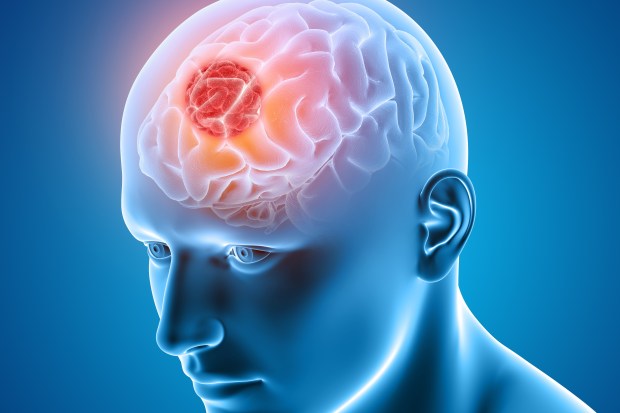
More than 12,000 Brits are diagnosed with a primary brain tumour every year — of which around half are cancerous — with 5,300 losing their lives.
The disease is the most deadly cancer in children and adults aged under 40, according to the Brain Tumour Charity.
Brain tumours reduce life expectancies by an average of 27 years, with just 12 per cent of adults surviving five years after diagnosis.
There are two main types, with non-cancerous benign tumours growing more slowly and being less likely to return after treatment.
Cancerous malignant brain tumours can either start in the brain or spread there from elsewhere in the body and are more likely to return.
Brain tumours can cause headaches, seizures, nausea, vomiting and memory problems, according to the NHS.
They can also lead to changes in personality weakness or paralysis on one side of the problem and problems with speech or vision.
The nine most common symptoms are:
- Headaches
- Seizures
- Feeling sick
- Being sick
- Memory problems
- Change in personality
- Weakness or paralysis on one side of the body
- Vision problems
- Speech problems
If you are suffering any of these symptoms, particularly a headache that feels different from the ones you normally get, you should visit your GP.
Source: NHS
